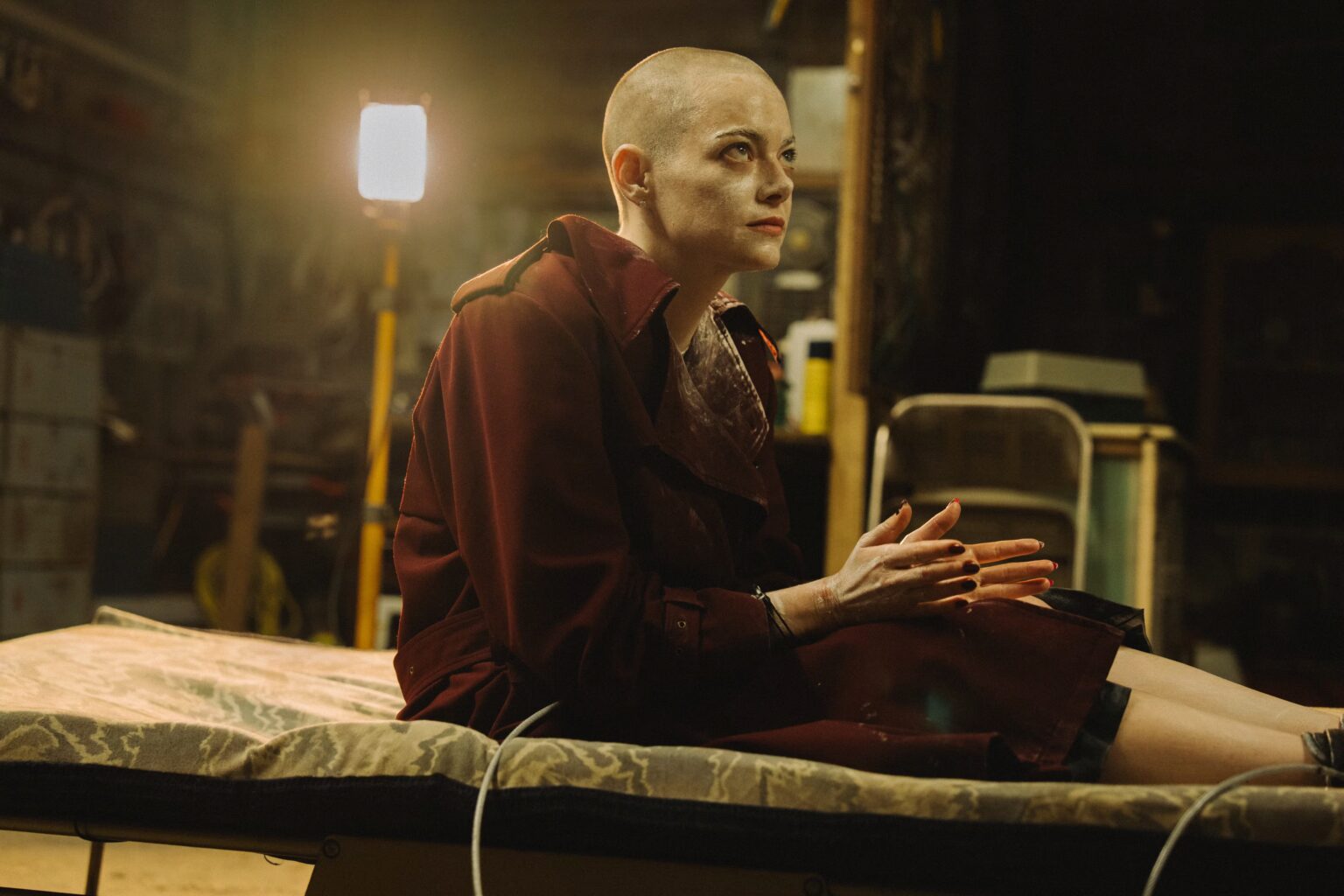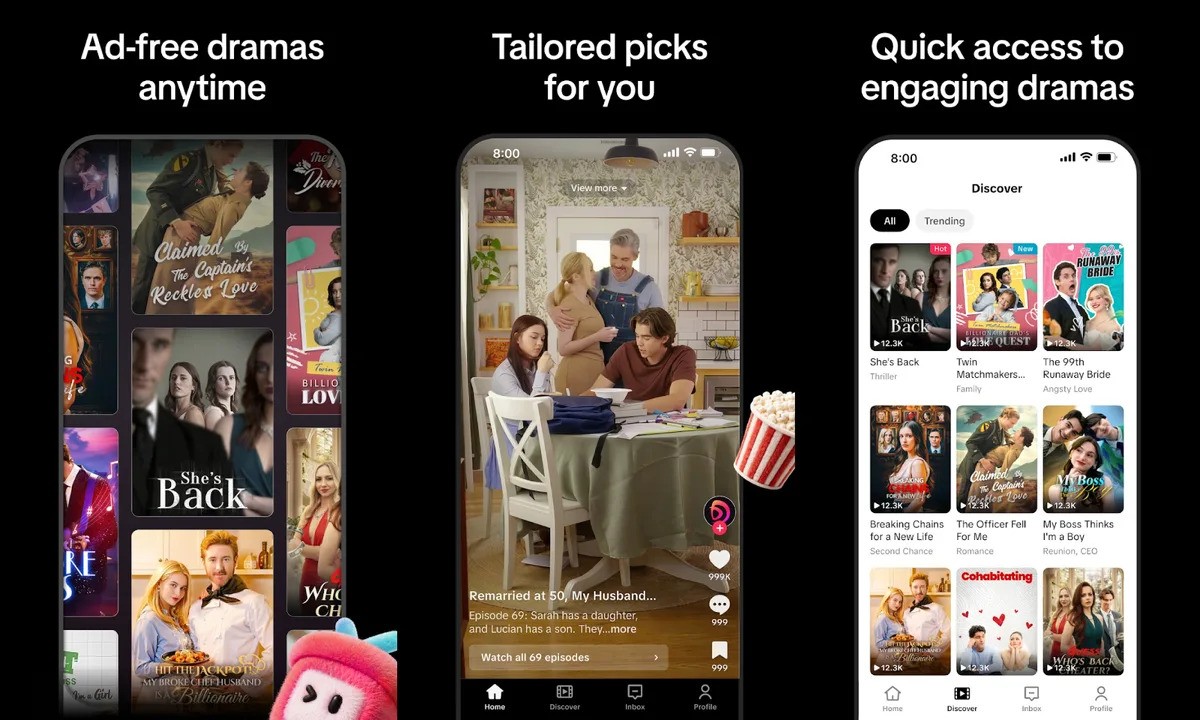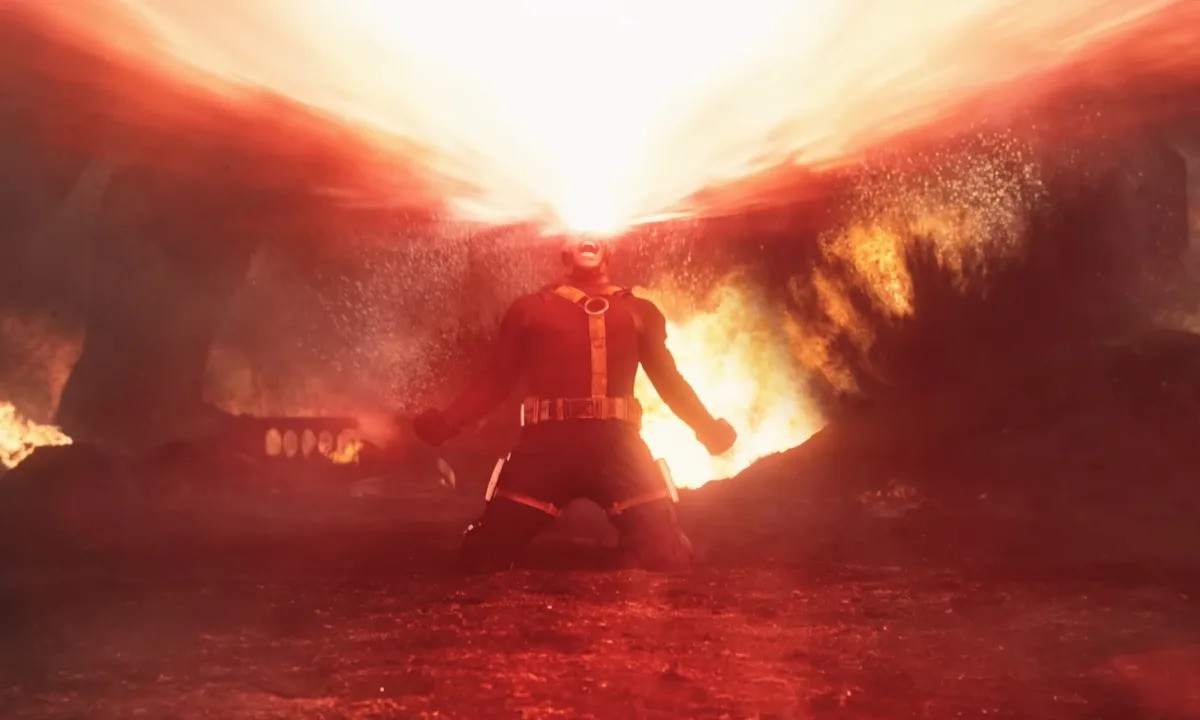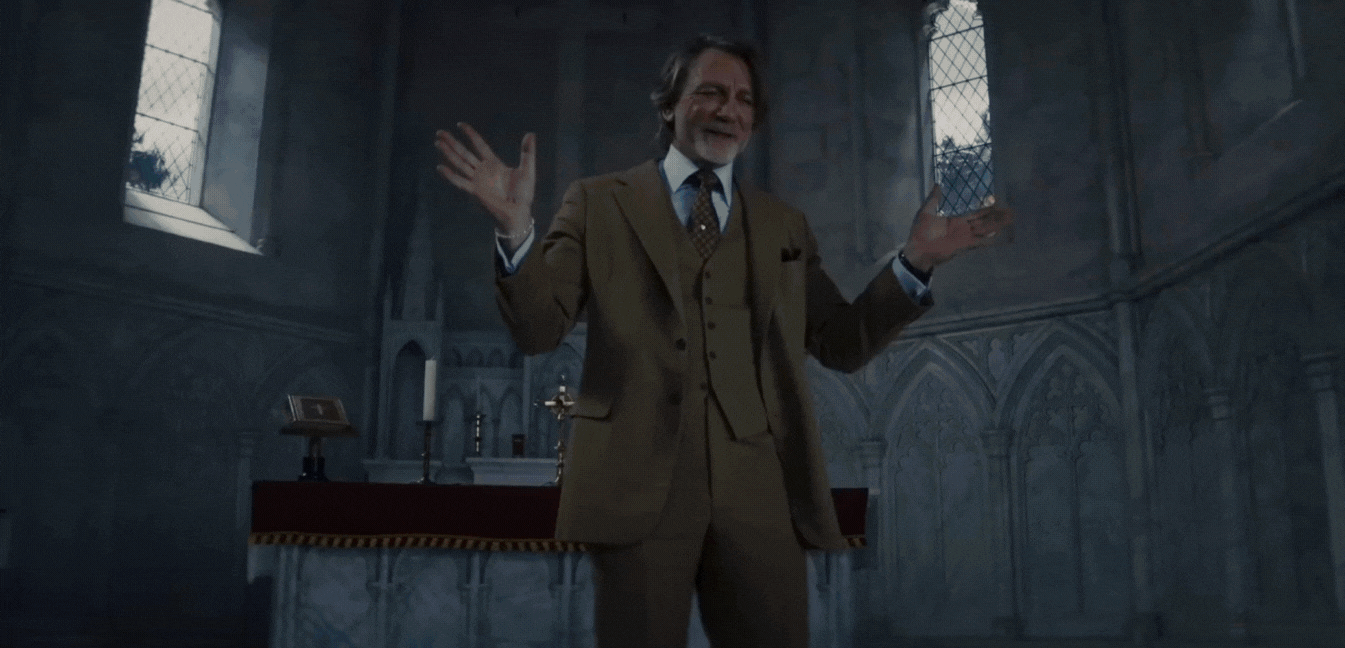It’s strange how a 2003 Korean sci-fi black comedy like Save the Green Planet, directed by Jang Joon-hwan, could shape what might be one of Hollywood’s most daring remake projects in years. When I first saw the twisted tale of a CEO kidnapped by a conspiracy theorist who believes he’s an alien in disguise, it felt both absurd and painfully human.
The spaceship, the destruction of Earth, and the notion of a “failed experiment” in humanity weren’t just plot twists, they were reflections of our own despair and existentialism. Now, under Weird Wave King Yorgos Lanthimos, the bizarre remake titled Bugonia finds new life. With The Menu writer Will Tracy crafting the script and an icy Emma Stone leading as the gender-bent CEO, it’s a modern adaptation with a strong flavor, one that refuses to soften for U.S. audiences.
I’ve followed Yorgos Lanthimos long enough to know his filmmaking thrives on absurdism, cynicism, and a biting satire of the human condition. His direction and artistic vision turn discomfort into art, merging existential dread, dark humor, and cosmic irony in a way that’s unmistakably auteur cinema.
In Bugonia, those elements collide with technology, dystopia, and moral ambiguity, a psychological sci-fi that pushes the limits of storytelling evolution. The narrative structure mirrors modernism itself: fragmented, reflective, and ruthlessly self-aware. Watching Emma Stone’s performance, one feels both alienation and empathy, a chilling emotional impact amplified by visual tone and surrealism.
There’s a revelation here, not just within the plot’s alien conspiracy or destruction motif, but in its societal critique of power, control, and identity confusion.
As someone who’s studied cinema and remake culture, I find Bugonia to be a perfect example of cultural translation and cinematic reinterpretation. It balances adaptation fidelity with creative choice, keeping the narrative consistency of Save the Green Planet while delivering a modern reimagining fit for the 2025 audience. The production, the filmmaking, and the storytelling style all serve one purpose, to make us question what it means to be human in an age of destruction, alienation, and despair.
This is more than a remake adaptation; it’s thematic resonance redefined through cinematic symbolism and artistic aesthetic. In the end, Bugonia doesn’t just reinterpret a film; it reinterprets humanity itself, making us wonder if every remake, every creative reinterpretation, is just another failed experiment searching for meaning in an indifferent cinematic universe.
Bugonia’s Ending Explained
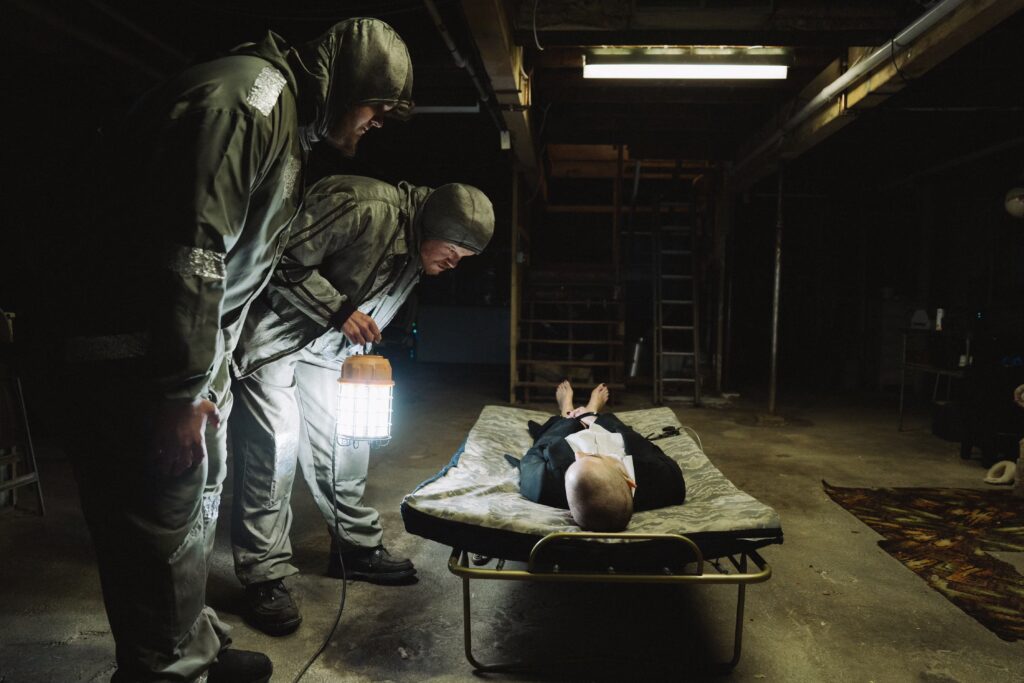
When I first watched Bugonia, I couldn’t help but feel the same creeping unease that defined Yorgos Lanthimos’ earlier work. The film, led by Jesse Plemons as Teddy Gatz, a conspiracy-theory-obsessed beekeeper, blurs the fragile line between paranoia and truth.
His belief that Michelle Fuller, played by Emma Stone, is an alien sounds absurd at first, the kind of delusion you’d expect from a lunatic who spends his nights listening to conspiracy podcasts and making wild statements about beings that communicate through their hair. But as the story descends into the basement of Teddy’s reality, quite literally, when he kidnaps and imprisons Michelle, we begin to sense that his madness might hide a sliver of reason.
Beneath the surface of this sci-fi black comedy, Will Tracy’s screenplay carefully stitches in themes of moral conflict, philosophical questioning, and existential dread. The pharmaceutical company, the clinical trial, the tragic experiment that leaves Alicia Silverstone’s Sandy, Teddy’s mother, in a coma, all tether the Andromedan mythos to a grimly human backdrop.
The antifreeze, posing as a cure, becomes a metaphor for misplaced hope and blind faith. When the IV drip delivers death instead of salvation, Teddy’s heartbroken despair feels almost biblical. In that moment, the line between humanity’s potential and its self-destruction collapses. We follow Michelle’s discovery of the hidden room, the dissected victims, and the revelation of the Andromedons’ interference across Earth’s history, stretching back to the dinosaurs. This narrative climax turns personal vengeance into cosmic justice.
As the explosion erupts, Teddy’s suicide vest igniting at the spaceship portal disguised as a closet, the wreckage gives way to something transcendent. Michelle awakens unconscious in the office, escapes the ambulance, and steps into a spaceship bridge, greeted by her fellow Andromedons. The throne scene, her rise as ruler, and the silent decision to order humanity’s extinction serve as the ultimate revelation twist.
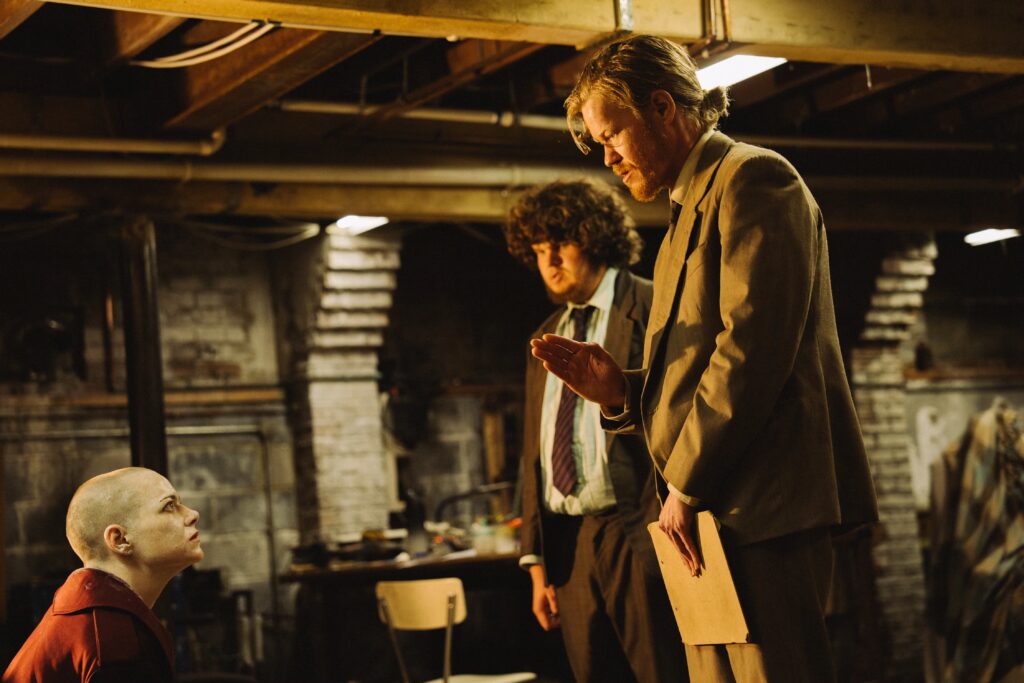
The final scene, draped in surreal, goopy visuals, captures a philosophical closure that’s more existential than emotional. It’s an apocalyptic finale, a dramatic ending layered with symbolism, thematic depth, and storytelling complexity. This isn’t simply a story about alien civilization or Earth’s destruction, it’s a thematic exploration of moral ambiguity, despair and irony, and what it means for humanity’s fate to rest in the hands of beings who may reflect us more than we care to admit.
How Does Bugonia Differ From The Original?
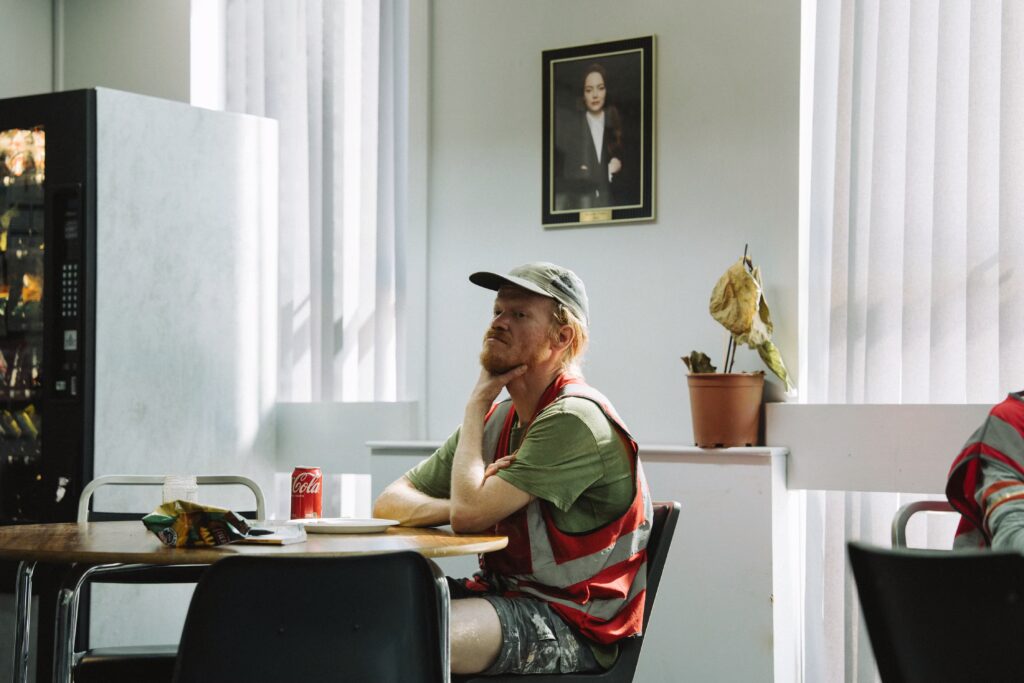
When Yorgos Lanthimos and Will Tracy reimagined Bugonia, their adaptation of the 2003 film Save the Green Planet, they didn’t just retell a story, they reshaped its soul. The ending, once rooted in early-2000s satire, now feels unnervingly timely, woven with threads of climate change, corporate corruption, and the mainstreamification of conspiracy theories.
As someone who’s followed Lanthimos’ filmmaking for years, I immediately sensed his aesthetic vision steering the narrative toward something more existential, a reckoning that mirrors our own hopelessness in the face of climate catastrophe and ecological crisis. The planet, its environment, and humanity’s relation to both are treated not as backdrops but as the beating heart of this cinematic adaptation.
The story changes, from the protagonist’s girlfriend in the original becoming Teddy’s cousin, Don (Aidan Delbis), to the removal of the police investigation subplot, may seem minor on paper, but they reshape the tone and narrative craft entirely. Tracy’s script, sharpened by Lanthimos’ direction and surreal style, turns the absurd into philosophical commentary, giving weight to the existential despair lurking behind the comedy.
The film’s social commentary now leans into sustainability, global warming, and societal decay, crafting an atmosphere where emotions and despair coexist with dark humor. This is a world where the future of Earth becomes both reaction and reckoning, an artistic reflection on the human condition and our inability to escape the cycle of destruction we’ve created.
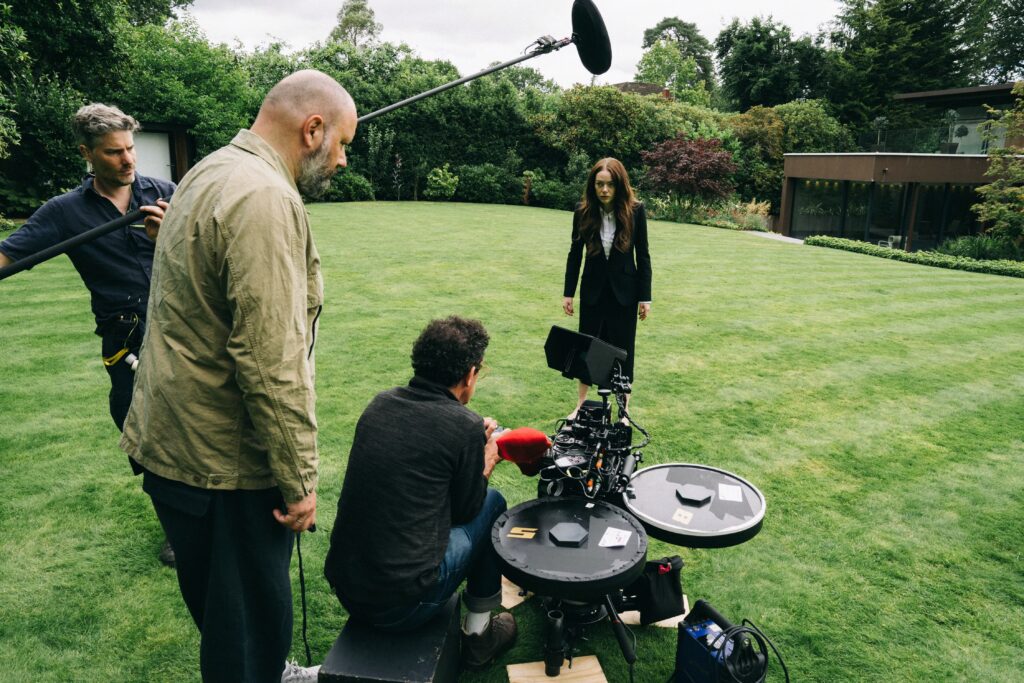
Even the Bugonia title itself, drawn from a Greek myth where bees are born from the corpse of a cow, embodies rebirth, transformation, and the thin line between life and death. It’s a mythic metaphor, a piece of symbolism that ties the grotesque to the beautiful, much like Lanthimos’ signature surreal tone. The mythology from ancient Greece blends seamlessly into the art and philosophical undertone of modern cinema, a reminder that resurrection can also mean decay.
The artistic motif, the symbolic rebirth, the visual poetry, all align with the director’s vision of creative storytelling, where thematic resonance, modern relevance, and moral reflection coexist. In this reinterpretation, the remake is not just a retelling, it’s a reimagining, a philosophical and artistic interpretation of humanity’s role in an age of climate urgency and ecological anxiety.

